Earthworms In Turf
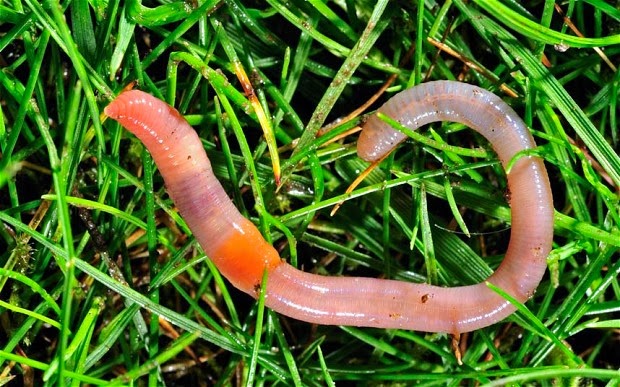
There are 28 commonly found species of earthworm in the UK, however only 8 of these create casts and of these 8 there are only 4 that commonly cause problems with casts on turf. Earthworms have an important role in helping to aerate soils, reduce compaction, improve water penetration and infiltration rates, processing organic matter and reducing thatch, very much like the role of the greenkeeper, so it is important any treatment has a selective action affecting only any casting issues.
The 4 common casting worms are:
Lob Worm (Lumbricus Terrestris)
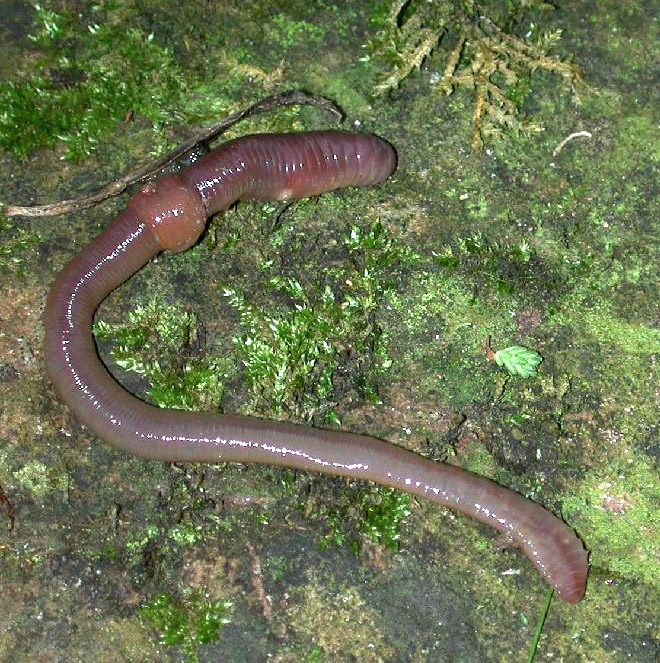
Lives in vertical burrows up to 3 metres deep. They feed on fallen leaves and decaying organic matter, such as thatch accumulation. The most common earthworm for causing casting issues in turf. Population approximately 20 - 40 per sq.m.
Black Headed Worm (Aporrectodea Longa)
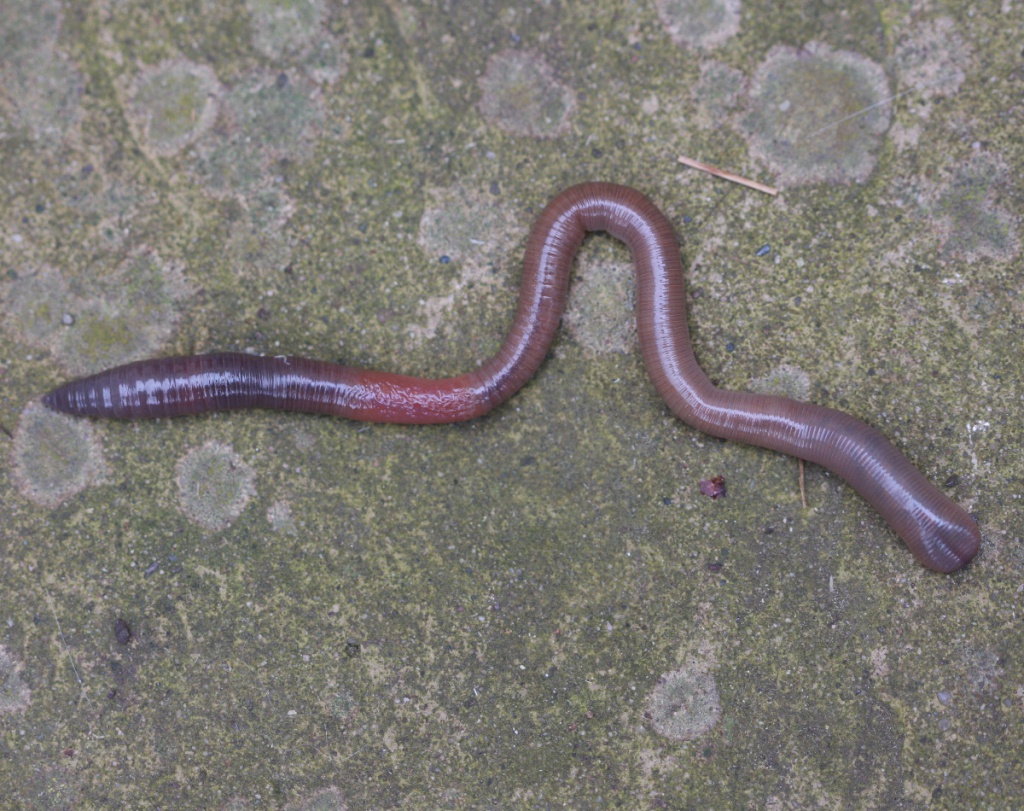
Lives in open alkaline grassland and cultivated soil, size 12 cm long and feeds on organic matter in the soil. The black headed worm has a population of approximately 5 – 20 per sq.m.
Grey Earthworm (Aporrectodea Calignosa)
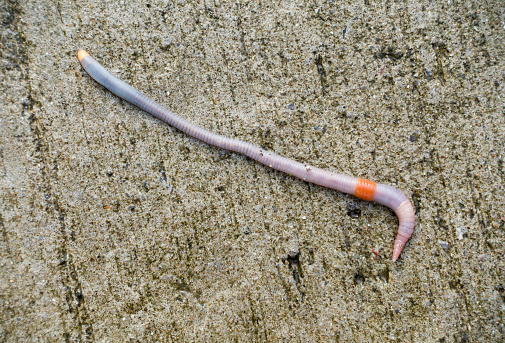
Feeds on soil and recycles it having taken out organic material. They make horizontal burrows in the soil to move around feeding sites. They are a grey/pink colour and look somewhat washed out and anaemic.
Microscolex Phosphoreus Worm
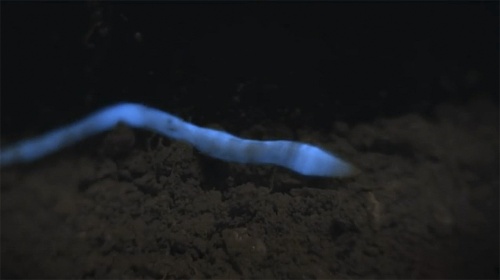
The one that leaves those very tiny little casts on the golf greens. Strangely it will glow in the dark when touched. Produces very small casts mostly during the day during August and September, they favour sandy root zones. Often not too much of a problem as their casts are small and sandy and therefore easily break down and tend not to smear.
The Anatomy Of The Earthworm
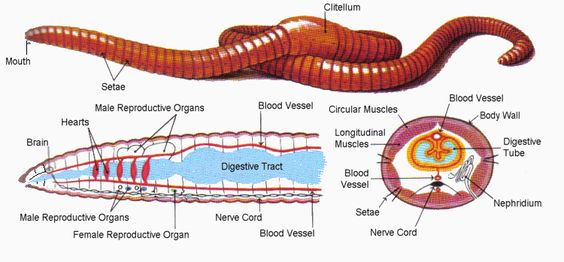
The Life Cycle Of The Earthworm
Earthworms are hermaphrodites but when two earthworms are ready to mate they each produce a mucus around themselves and then hold on to each other’s saddles. The mucus that they produce is an ideal environment for them to be able to exchange sperm. They hold their partners sperm in the mucus. As the earthworm moves along the mucus and sperm mixture comes off at the head end. As it does so, it picks up the eggs which mix with the sperm of the earthworm that it mated with. This mucus sheath forms a lemon shaped cocoon and fertilisation of the egg occurs within this cocoon.
The baby worms, called hatchlings, emerge and burrow into the soil where they grow into juvenile then mature earthworms. Each earthworm has between 1 and 20 eggs in each cocoon and can produce up to 80 cocoons in a year. Each earthworm lives for between 4 - 8 years.
The Problem With Worm Casts
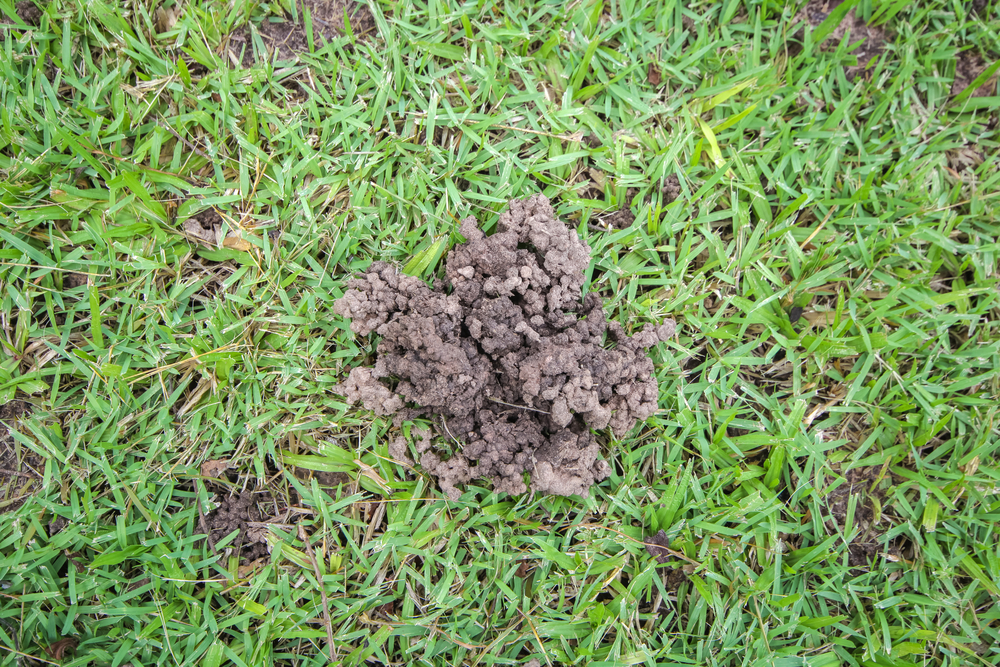
The casts of earthworms can cause a number of problems for turf managers and for sportsmen. Playing surface disruption by leaving little piles of soil in the way. Getting mud collecting on shoes and playing equipment. Causing a slippery surface. Damage caused by Foxes and particularly Badgers looking for earthworms to eat can be catastrophic, with turf areas being ripped apart.
Mole activity will be a major issue as surface levels can be ruined caused by their burrowing activities and leaving mole hills on the surface. Damage to machinery, particularly with casts going through cutting machines and collecting on the rollers effecting height of cut. Each earthworm cast that is smeared on the surface is an ideal seed bed for weed seeds. Increased bird damage (Starlings and Crows) caused by pecking and tearing of the turf.
Cultural Practices To Reduce Earthworm Casts
Cultural practices along with other accompanying techniques are now at the forefront of earthworm cast management for the turf manager, these include:
Clipping removal by box cutting to reduce surface organic matter.
Regular thatch and surface litter control reducing the percentage of organic matter and subsequent food source through mechanical operations such as aeration, verticutting, scarification, coring for thatch reduction.
Monitor surface pH regularly. Not just soil pH but is the top surface more acidic to deter earthworms from breaking the surface and casting.
A sensible balanced nutritional programme, based on soil analyses if required, with the aim of providing the correct amount of nutrient to the sward and nothing more. For a bespoke nutritional programme contact your FACTS Qualified Advisor at Collier Turf Care.
Accurate irrigation use, utilising soil moisture metres to ensure soils are not over irrigated which can reduce organic matter breakdown favouring earthworm colonisation and activity.
Increased use of sandy top dressing which may deter earthworm activity but not always.
Efficient and regular leaf removal from turf.
Treatments To Deter Earthworm Casting
As earthworms like a neutral or slightly alkaline soil, a good way to deter casting is to increase the acidity the soil surface. There is a wide selection of products available that make claims to prevent earthworm casting. Most of these products work on the principle of lowering the surface pH of the soil and creating a layer to keep casting worms below the surface.
Prestige Super Soil Acidifier
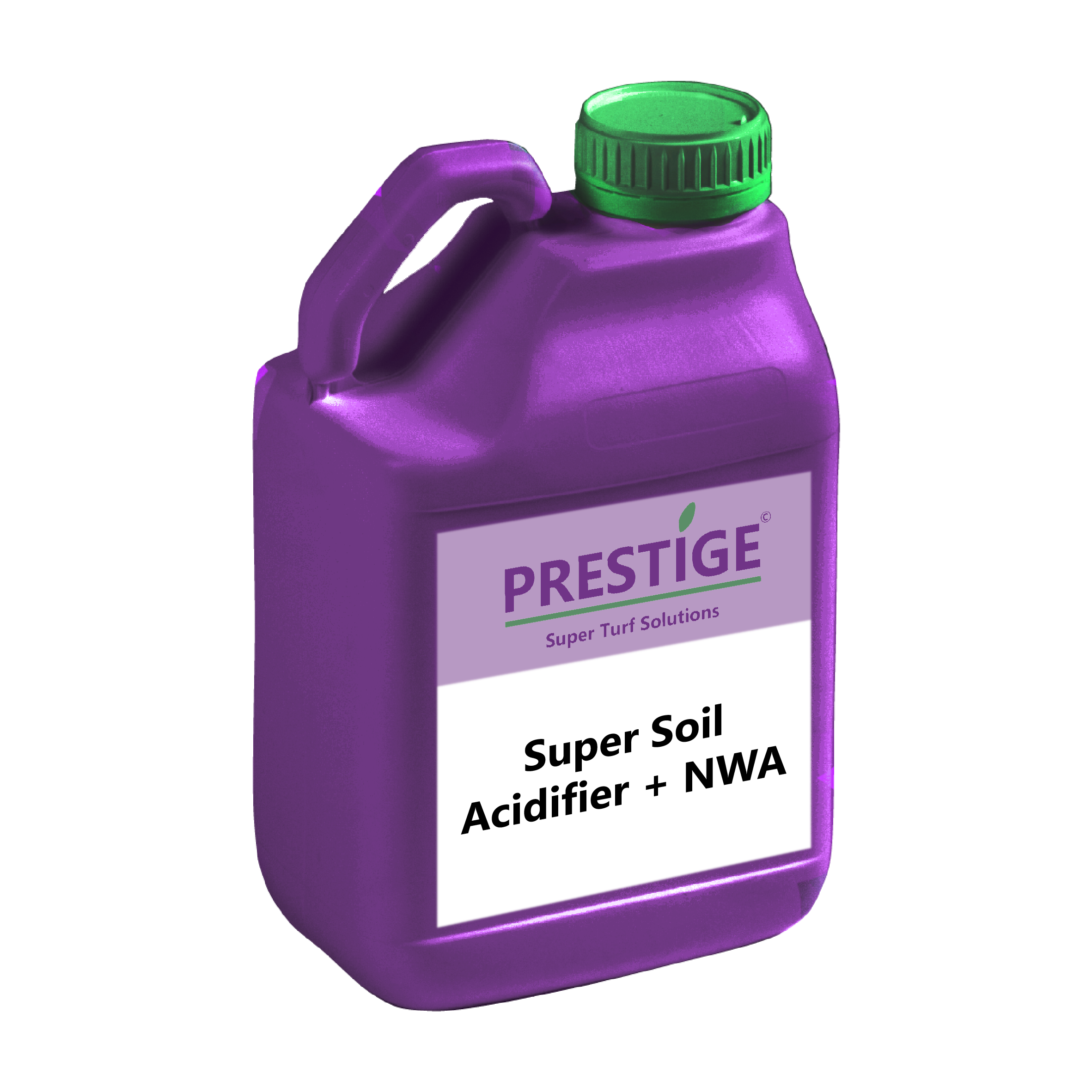
Encourages worms to stay below the surface, using a unique combination of nutrients and natural wetting agents whilst improving plant health and adding colour to the sward. Prestige Super Soil Acidifier + NWA liquid can be used as part of an Integrated Pest Management Strategy, a natural way to improve soil structure.
Outcast
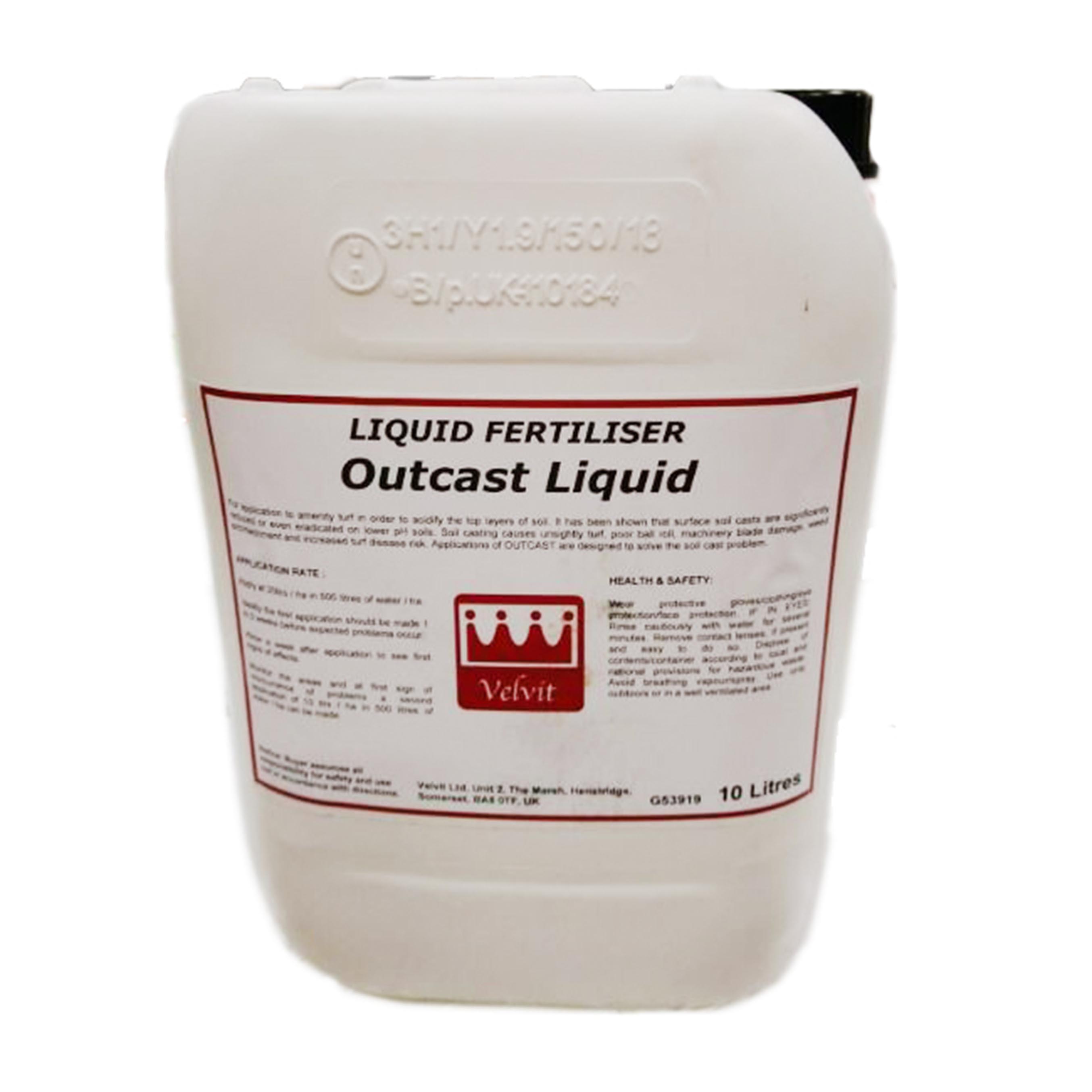
Outcast is a specialist ammonium sulphate based fertiliser with added surfactants for application to any amenity turf to acidify the surface and lowering the pH. It can significantly reduce or even eradicate the soil casting of earthworms.
These treatments are effective in reducing or even eradicating earthworm casts but as earthworms are always reproducing and moving within the soil it is necessary to reapply these treatments on a regular basis when earthworms are casting.
Carbendazim

For many years Turf Managers used products containing Carbendazim to reducing worm casting. All products containing Carbendazim have been revoked and since 31st August 2017 it has been illegal to store or use them. Unfortunately many local Water Authorities are detecting alarmingly high levels of Carbendazim in the water supply. The Environment Agency are investigating cases and legal actions will be taken. It is easy to trace it back to its source.
It is illegal to store or use unapproved pesticides, so it is important to ensure that all pesticides in your store are approved. Many products are losing their approval under the EU Review programme, so check the approval status of yours at least once a year. Collier Turf Care’s BASIS registered advisors can help identify those which may no longer be legally used and which require disposal by a licensed waste contractor.
By Chris Humphrey MBPR FQA, Technical Manager
For further expert help with worm casting and advice on the products to use, contact Collier Turf Care on 01328 700600